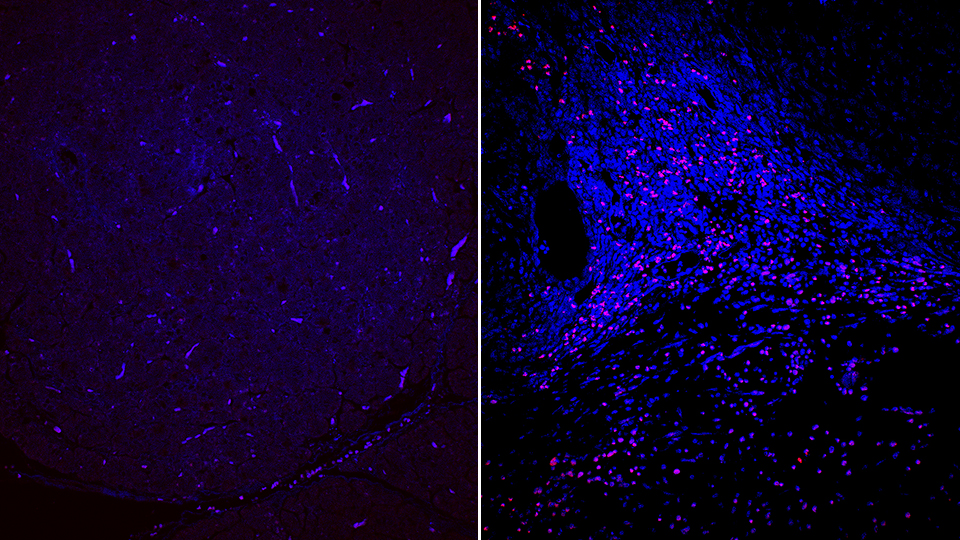
Normal and cancerous pancreatic tissue. The blue background represents the cells that produce digestive juices supplied by the pancreas to the gut, and the red dots—seen only in the cancerous pancreas—represent the bacteria found to be a thousand times more abundant than normal.
Antibiotics may make immunotherapy more effective against pancreatic cancer. The population of bacteria in the pancreas increases more than a thousand fold in patients with pancreatic cancer, and becomes dominated by species that prevent the immune system from attacking tumor cells. These are the findings of a study conducted in mice and in patients with pancreatic ductal adenocarcinoma (PDA), a form of cancer that is usually fatal within two years...
Read More








Recent Comments